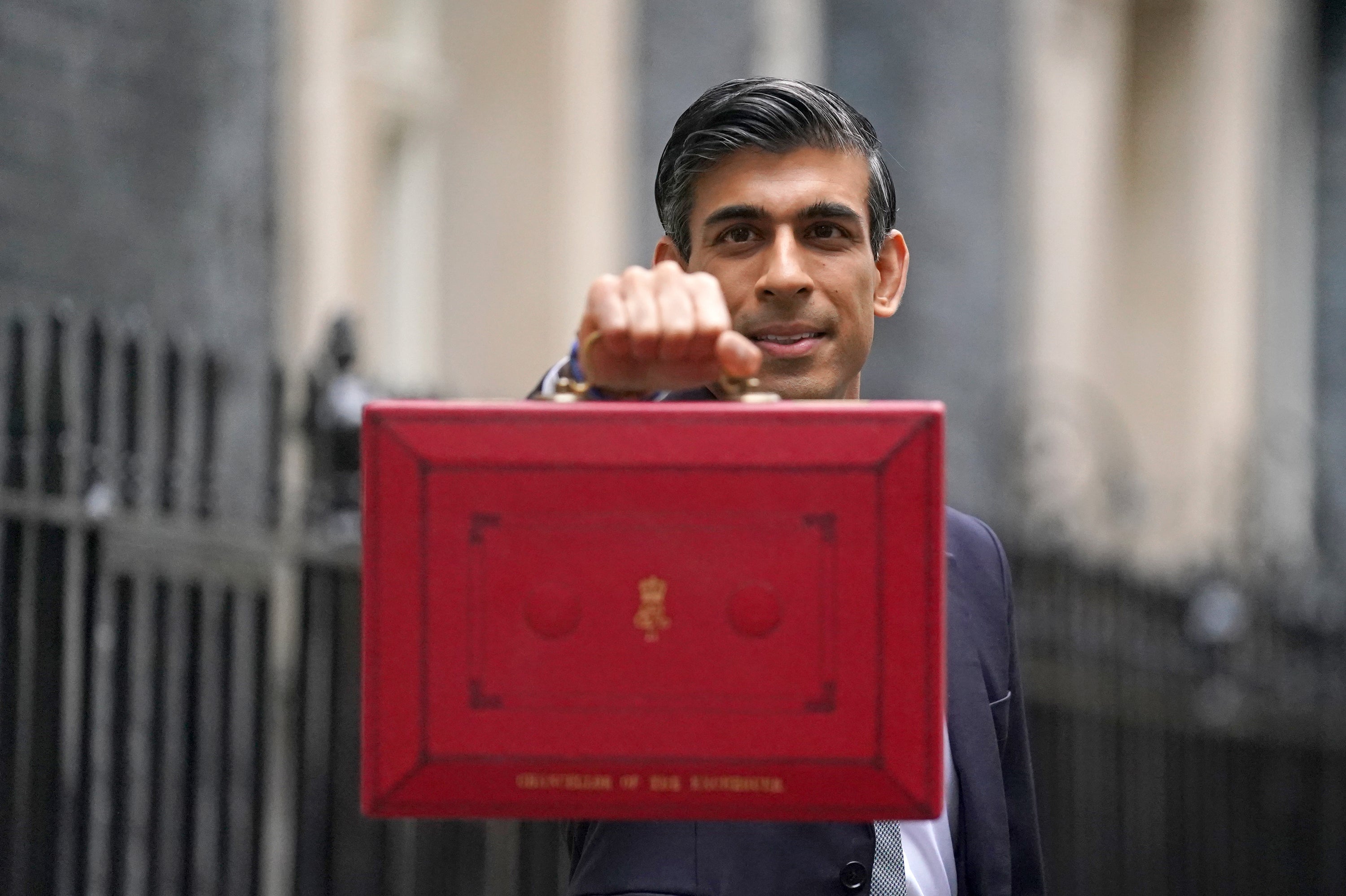What could Rishi Sunak do to ease the cost-of-living crunch?
The chancellor has a tough job on his hands but doing nothing looks like an increasingly untenable option as Russia’s invasion of Ukraine puts further squeeze on living standards

As energy bills, petrol costs and food prices Rishi Sunak faces tough decisions when he delivers his latest spending announcement next week.
The chancellor is coming under intense pressure from all sides to deliver additional help for struggling households but has so far been resolute in his insistence that he will press ahead with a national insurance hike and effective increase income tax.
Those moves threaten to deepen the impact of the worst fall in living standards in decades.
So what could he do?
Campaigners, charities and some economists are urging the chancellor to do two things: scrap the tax rises and provide a significant package of targeted support to people on the lowest incomes.
There is a strong case for this. He has billions of pounds more than the government's forecasting watchdog predicted just a few months ago, thanks to better-than-expected tax receipts.
However, it would represent a big u-turn. Just a few weeks ago, the chancellor and the prime minister wrote a joint article in the Times in which they firmly backed keeping the national insurance increase in place.
While the pair may present a united front in public, it is clear that there is a split between the prime minister, who is understood to be in favour of providing more help, and the chancellor, who wants to keep a tight grip on the purse strings.
Russia's invasion of Ukraine - and the resulting increases in energy and food costs - may have tipped the balance in favour of additional spending but Sunak in unlikely to be easily persuaded.
He reportedly wants to be able to cut taxes before the next general election, prompting accusations from anti-poverty charities that he is playing politics instead of doing what's best for the country.
Among the best ways to target support towards those most in need would be to increase benefits payments but Sunak has so far chosen not to.
Increasing benefits payments is not very popular among Conservative Party members - the very group of people who would vote on who becomes leader when Boris Johnson’s time is up.
The chancellor's alternative approach, announced earlier this year, was to cut household energy bills by £200 and then recoup the money by increasing bills in later years has been widely criticised.
He has also promised a council tax rebate of £150 for millions of people but the measure is poorly targeted, with many poorer households missing out while many wealthy ones receive help.
Taken together, the schemes cover barely a quarter of the extra £38bn that energy customers will pay on their bills this year.
It is possible the chancellor could make these measures more generous but that wouldn't make them any better targeted.
Industry leaders who have met with Treasury officials in recent days sense a softening of the department's hard-line approach to budgetary discipline.
"They understand that the rebates and loans were poorly received and seem to be in listening mode," said one source who met with the Treasury late last week.
The consequences of not providing further help could be severe. National Energy Action estimates that some 8.5 million people will be unable to properly heat their homes energy bills increase to £3,000 a year for an average customer. That would mean fuel poverty had more than doubled in one year.
Households on the lowest incomes will be hit hardest. Many are entering this crisis in an already precarious financial position, struggling to make ends meet after years of stagnant wages and cuts to benefits.
Older people on low incomes are expected to be among the most severely impacted, with Age UK estimating that 9 in 10 older households on the lowest incomes would be in fuel stress.
Accurate and up-to-date figures for the number of people facing destitution, unable to afford basic essentials like adequate clothing and heating, are not currently available because data gathering has been disrupted by the pandemic.
What is known is that before Covid struck, the Joseph Rowntree Foundation had recorded a significant rise in destitution.
Without help, a further large rise is seen as inevitable. Sara Ogilvie, of the Child Poverty Action group said many families have faced a cost-of-living crisis for years but are still "terrified" by what they face.
“They have been up against it for years. They've got no savings. They've got nothing left to fall back on."
The charity, along with the JRF, the Resolution Foundation and others are calling for benefits to increase in line with inflation.
That would mean another 5 per cent rise in universal credit, in addition to the 3.1 per cent already planned.
In his autumn budget, Sunak cut the taper rate for universal credit in his autumn budget, allowing claimants to keep more of their benefits as their pay increases – he could reduce it further.
Whatever approach the chancellor takes, doing nothing looks increasingly untenable.
Subscribe to Independent Premium to bookmark this article
Want to bookmark your favourite articles and stories to read or reference later? Start your Independent Premium subscription today.

Join our commenting forum
Join thought-provoking conversations, follow other Independent readers and see their replies